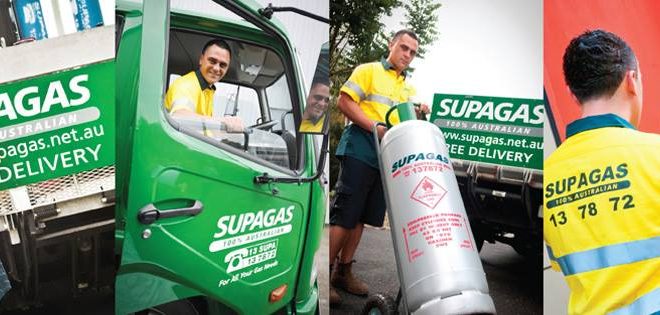
Complicated and outdated network, due to acquisition and growth.
Australian supplier of LPG, industrial, medical, speciality and helium gases in Australia, Supagas has chosen Macquarie Telecom to provide it with provide VoIP, SD-WAN, nbn, mobile and data centre services to help accelerate the company’s cloud migration.
Supagas has grown significantly with several acquisitions and subsequent sale to Japanese company Taiyo Nippon Sanso Corporation (TNSC).
In 2016 the Australian owned company was acquired by Japanese industrial gases and plastics manufacturer Taiyo Nippon Sanso. At the time Taiyo was listed on the Tokyo Stock Exchange and had an AU$6.2 billion market capitalisation. It entered the Australian market in 2015 when it bought local LNG and industrial gas distributor, Renegade Gas.
It is understood the deal valued Supagas at more than AU$300 million and was subject to the proper Foreign Investment Review Board approvals.
Tech complications from growth
However, the growth left the company with a complicated and outdated network, comprising pieces of fibre, wireless, nbn and ADSL services. This was hindering its ability to innovate and transition to digital services, said Peter Sudiro, national IT Manager at Supagas.
“With multiple companies merging together rapidly and each bringing its own mix of underlying infrastructure and systems, it became an increasing challenge to efficiently maintain our business,” he said. “This was costing time, money and generating frustration for staff. The IT team was overwhelmed with the amount of duplication and lack of visibility across the complex technology stack.”
Sudiro told CIO Tech Asia, his key focus upfront was to stabilise Supagas’ current environment, standardise and simplify the technology stack, and centralise all IT support under a common set of tools and procedures.
“With the approach understood, the assessment was simpler and done within three months. Implementation was lengthy as we were determined to minimise disruption by implementing changes in a methodical manner,” he said. “Our branches are critical to our customers, so network-based infrastructure was heavily weighted in the assessment.”
Transitioning technology
Sudiro said customers’ ability to contact branches directly was the most essential part of its business and supply chain, and it was time to transition from traditional voice to a cloud-based VoIP system. he said. “We needed solid connectivity and couldn’t rely on our overly-complex network to navigate this transition without disruption to our communications.”
Supagas chose Macquarie Telecom because it needed a vendor that could provide a suite of solutions (fibre network, data centre, mobile, VoIP), with a simple centralised management tool for IT staff, and at a sustainable cost without the overheads one would expect from a telco, said Sudiro.
“A key attraction was the SD-WAN technology that allowed us to join our businesses quickly and provide detailed visibility of our network while still maintaining the underlying legacy network,” he said. “With this in place, we could carefully consolidate and simplify our data network as the SD-WAN does permit this, all other solutions followed.”
Overhauling the system
Currently Supagas is working with Macquarie Telecom to overhaul the network and deploy its SD-WAN and SIP services in all 41 sites. This enabled a smooth transition from 20 independent phone systems and five different providers into one company-wide VoIP service.
SD-WAN maximises the network speed and reliability at each site and includes a 4G failover to ensure robust communications.
Increased visibility and control has enabled Supagas to prioritise VoIP calls ahead of other services such as email, video conferencing and ERP.
Macquarie is also managing Supagas’ nbn migration, with 90 per cent of sites now on the national network. The telco has upgraded connections to business-grade fibre in most premises, increasing speed by between fourfold and tenfold while lowering costs for Supagas by 21 per cent.
Moving to hybrid cloud and emerging technologies
The gas provider is working with IT partner Aurilo Communications and Macquarie Data Centres’ Intellicentre facilities to host its VoIP system and its FortiGate VPN, which has been essential in helping the business remain fully operational during COVID-19 restrictions. Staff were able to quickly transition to working from home and communicate with customers without any downtime.
“We’re looking towards more online services leveraging Macquarie’s Cloud Services and Data Centre businesses following the success so far,” added Sudiro. “Ultimately, we’re moving to hybrid cloud with infrastructure hosted where possible and our team managing software in-house, with emerging technologies such as the internet of things (IoT) being part of that.”
Supagas has also transitioned over three quarters of its mobile services from a mixture of tier one providers to Macquarie Telecom. This has given the company better control and visibility over its team’s shared data pool and an easy to use management tool. It has also delivered cost savings of 37 per cent with further savings expected once the remaining legacy requirements expire and Macquarie manages the full service.
Autonomy in decision making
Sudiro said although Supagas is part of a multinational gas manufacturer, the assessment and decision making happened locally. Australia is unique in its size, remoteness, and available technology.
“Having local staff with experience in this landscape is greatly advantageous in delivering the most efficient result,” he said. “I report to the local managing director, because each business entity is quite autonomous in its strategy and execution.
Sudiro said his role requires an understanding of the technology needs of our business and guiding stakeholders through what the future can look like. As stakeholders can have independent views, being a central point to consolidate any overlapping or conflicting requirements is an advantage.
“We have 41 branches across Australia requiring ongoing support for infrastructure, applications, security and devices,” he said. “Technology is always changing, so there’s an ongoing requirement to assess what is working, what can be improved, and how we can be more effective in supporting our staff and customers.”
Tags: data centrefibre networkMacquarie TelecomSD-WANSupagasVoIP




